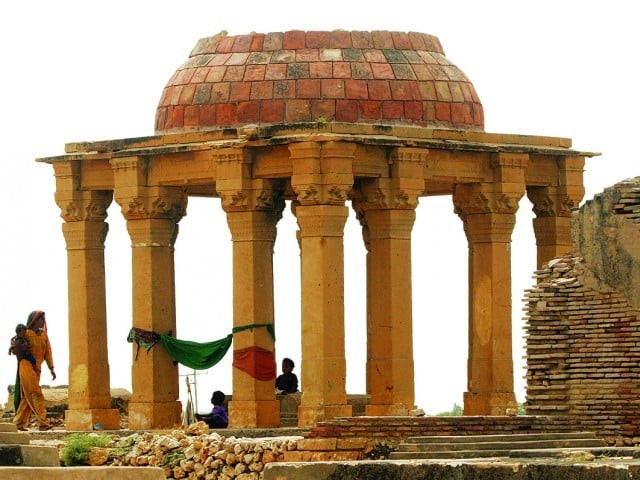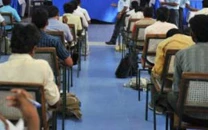[Un]documenting the past: Everything you know about Makli is wrong, says historian
Historian revisits necropolis to find entire swathes undiscovered.

The Ayat alKursi is not the only surah inscribed on the funerary monuments. PHOTO: FILE
Everything you know about Makli is wrong. Well, almost everything.
For one, there aren’t necessarily a million graves in the protected heritage site - a fact which could mean that perhaps it isn’t the largest necropolis in the world.
This bombshell came from Dr Kaleemullah Lashari, who has been documenting Makli since 1985. The former secretary of antiquities with the Sindh government was making a presentation on his discoveries while studying the cenotaphs or tombs to a group of experts and students gathered for NED University’s First History Group conference on Saturday.
“Not every grave is dated,” he went on to say, listing the myths surrounding Makli. The Ayat alKursi is not the only surah inscribed on the funerary monuments and contrary to popular belief, the graveyard is not 992 acres large. According to Lashari, when it was declared a protected site, the authorities forget to include 1,000 acres on the other side.

“For 80 years nobody ever thought that the [number] of graves [on the protected side] equals the number of graves on the other [forgotten] side,” he said, referring to the 1,000 acres. “So, a huge amount of historical material [has gone] unnoticed.”
In his work, Lashari discovered that 45 per cent of the cenotaphs were not inscribed and only 55 per cent of them were dated. He then went over the designs of the ones with dates and painstakingly compared them with the undated ones to try and place them chronologically. At the end of the effort he has been able to place 37 per cent of the undated graves.
He also found that the choice of Quranic verse was an indication of how the society at that given time was thinking. It is popularly said that only the Ayat alKursi is inscribed, but in fact, he has found high numbers of Surah alImran, Surah atTauba and to a lesser extent Surah alAnkabut.
What has not changed, however, is the risk of Makli’s treasures being destroyed. Dr Lashari gave the example of a man with the surname of Palijo, who in 1994 brought in a bulldozer and razed 400 yards. When people called Lashari up in Islamabad and informed him, he made an angry phone call to the district commissioner to tell him the destruction of the heritage site must stop. It was stopped but the damage was done.
A member of the audience at the conference asked Dr Lashari why Makli was not being fenced off or a boundary wall was not being constructed to stop such people. “No walls can save your heritage,” replied Dr Lashari. Our laws have to prosecute offenders. But there is another consideration; sites like Makli were often created on higher ground so that they could be seen from afar. Building walls around them would defeat the purpose.
Our laws to prosecute such offences are terribly new. The Sindh heritage law was only made in 1994 and since then, has been used only once for a case of farmer encroachment in Badin to prosecute offenders.
Dr Lashari gave an example of how people need to be deterred from destroying their own heritage. “The old chowkidar at Makli floats this story that once a man stole [from a tomb] but he couldn’t sleep for six months and then, after several tragedies befell his family, he brought the [piece] back.” Urban legends like this should scare people but ideally stories of prosecution should.
When The Express Tribune pressed Dr Lashari to give a new estimate of the number of graves, given that he was saying there were not one million as commonly believed, he smiled mysteriously. All will be revealed in his three-volume book being published. He did say, though, that it would connect the old people to the new in the sense that people would discover ancestors they never knew about. Until the book is launched, he is going to be silent as the grave on the stunning new research.
Published in The Express Tribune, October 6th, 2013.


















COMMENTS
Comments are moderated and generally will be posted if they are on-topic and not abusive.
For more information, please see our Comments FAQ